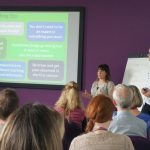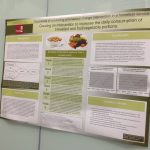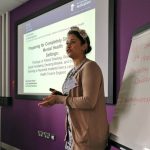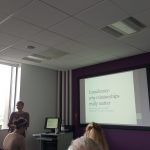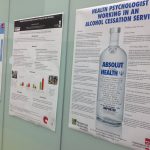Staffordshire University’s Professor David Clark-Carter will receive a Lifetime Achievement Award from the British Psychological Society for his contributions to teaching and research methods nationally and internationally.

David has worked at Staffordshire University since 1989 and is currently the Professor of Psychological Research Methods. Throughout this time David has inspired generations of students and his seminal text Quantitative Psychological Research: the Complete Student’s Companion is popular across many institutions.
From the development of a half degree in psychology on a Modern Studies course, through to the first ever BPS accredited Professional Doctorate in Health Psychology and MSc in Health Psychology, David has been central to course and programme development at Staffordshire University’s Centre for Health Psychology.
Dr Amy Burton, Course Director for the MSc in Health Psychology at Staffordshire University, was part of the team who nominated David. She commented:
“Having studied both my BSc and MSc at Staffordshire University I have experienced first-hand David’s approach to supporting and educating students. It is a pleasure to work alongside David on our MSc and Professional Doctorate Health Psychology courses and see our students benefit from the inspiration and support I valued in my own student journey.”
Judy David, Academic Group Leader for Undergraduate Psychology Programmes added:
“David’s influence with psychological research methods education runs to literally thousands of researchers, academics, students and professionals, in the field of Psychology. His influence on Psychology as a Science cannot be overstated; he has shaped the discipline as a whole. We are so proud to have him on our team here at Staffordshire.”
Outside of the University David has also provided quality assurance for the BPS Accredited Qualifications, contributing to syllabus design and acting as Chief Examiner for BPS Qualifying Examination Research Methods module.
On accepting the award, David said:
“My approach to education has always been to try to empower the next generation of psychologists so that they feel they can use their subject to solve problems involving humans, regardless of the domain. This notion has guided my approach to public engagement in that I try to show how psychology can address everyday issues from its unique perspective.
“In addition to the joy of seeing those I’ve taught go on to do great things, I have benefitted, as the only way to know whether you truly understand something is to try to explain it to someone else. I am extremely honoured to be given this award.”
Find out more about Staffordshire University’s range of Psychology courses here.
This is a reposting of a Press Release from Staffordshire University and the British Psychological Society.
Interested in Psychology? Come to an Open Day & find out more about Psychology courses at Staffordshire University.
Curious about how psychologists test and observe behaviour? Thinking about taking a Psychology degree or a related course?
Come to one of Staffordshire University’s Open Days and find out more! Book your place via: www.staffs.ac.uk/openyourmind/





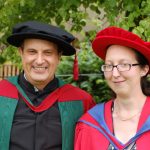
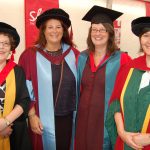
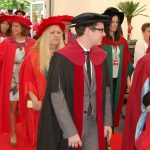
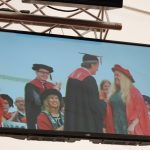


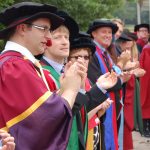


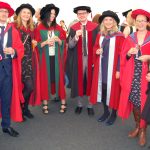
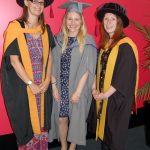
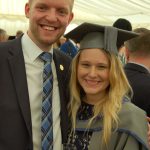
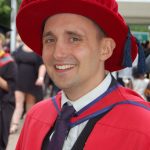


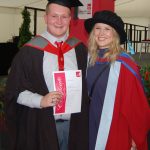
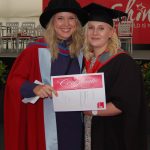
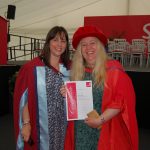
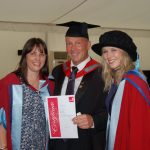



 The
The 
 ere able to explore the links in detail. While many of the risk factors identified echoed those for non-gambling-specific self-harm in the general population, there were also some interesting novel findings, which could have important implications for assessment and treatment. I found it particularly intriguing that those who gamble as a means of mood modification were more likely to have self-harmed, and not only because of their gambling problems. Gambling and self-harm can both be maladaptive ways of coping, and
ere able to explore the links in detail. While many of the risk factors identified echoed those for non-gambling-specific self-harm in the general population, there were also some interesting novel findings, which could have important implications for assessment and treatment. I found it particularly intriguing that those who gamble as a means of mood modification were more likely to have self-harmed, and not only because of their gambling problems. Gambling and self-harm can both be maladaptive ways of coping, and  The
The 
